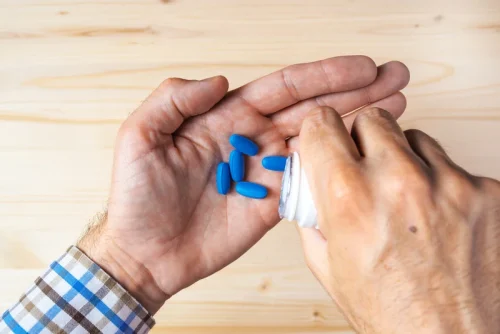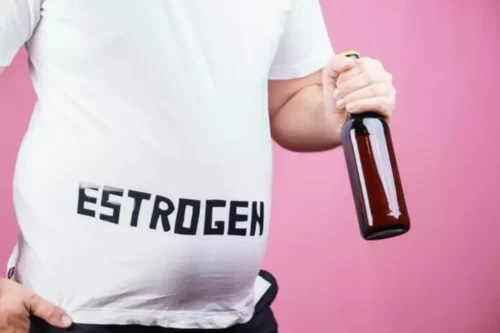
Individuals with experience and expertise may find a route to full employment by first being willing to offer their skills pro bono or as a volunteer to businesses or nonprofit organizations in their field. • Developing a detailed relapse prevention plan and keeping it in a convenient place for quick access when cravings hit, which helps guard against relapse in the future. A good relapse prevention plan specifies a person’s triggers for drug use, lists several coping skills to deploy, and lists people to call on for immediate support, along with their contact information.
Who Experiences Alcohol Withdrawal Symptoms?
- Addiction involves brain mechanisms, particularly in the dopamine system crucial to reward processing.
- It’s a universal roadmap that can guide individuals through the rocky terrain of recovery, regardless of the specific addiction they’re facing.
- Both acute and post-acute withdrawal can be addressed safely with the right care.
- A lack of positive references and having a criminal record typically pose challenges.
It’s important to note that the specific strategies used in the action stage can vary depending on the type of addiction. For substance use disorders, it might involve detoxification, medication-assisted treatment, or inpatient rehabilitation. For behavioral addictions like gambling, it could involve cognitive-behavioral therapy or support groups. People who use other illegal drugs in addition to alcohol typically experience more severe withdrawal symptoms. The detoxification process in such individuals can be complicated, requiring specialized medical care. If you have an addict in your life, help them build a detailed and practical plan of lifestyle changes, treatment program options, and behavioral therapy options that will help set them up for long-term success.
- It requires individuals to let go of any notion of control over their drinking and recognize that they need assistance to break free from the cycle of addiction.
- In addition, immediately attending or resuming group meetings and discussing the relapse can yield much advice on how to continue recovery without succumbing to the counterproductive feeling of shame or self-pity.
- They are enjoying the benefits of their newfound sobriety while taking steps to maintain it in the long term.
- If medication is part of your treatment plan, reduced alcohol cravings and a greater sense of control are signs that it is working.
Get Alcohol Addiction Treatment
It’s important to remember that different individuals respond differently to various therapeutic approaches. A comprehensive and individualized treatment plan may incorporate a combination of these techniques to address the specific needs of each person on their journey to sobriety. Acceptance also means acknowledging the potential consequences of continued alcohol abuse, such as worsening health, damaged relationships, and legal or financial troubles. It involves embracing the fact that seeking help and embarking on the journey to sobriety is the best course of action. The journey to recovery is not a straight path, but rather a process with distinct stages.
Social Networks

Identify other factors in your life—relationships, work—that can help take the focus off addictive behaviors. Neuroscientist Adi Jaffe, Ph.D., who himself recovered from addiction, outlines five steps. Planning in advance a way out of high-risk situations—whether an event, a place, or a person—helps support intentions in the face of triggers to use. You, nor your loved one, are under any obligation to commit to a Legacy Healing Center treatment program when calling the helpline. Addiction Resource aims to provide only the most current, accurate information in regards to addiction and addiction treatment, which means we only reference the most credible sources available.
- Treatment and education can help adults learn techniques for handling urges and ways of accepting and managing negative emotions.
- At this point, it’s obvious to those close to you that you’re struggling.
- The evaluation consists of 11 yes or no questions that are intended to be used as an informational tool to assess the severity and probability of an AUD.
- They may experience negative consequences as a result of their drinking, such as strained relationships, declining physical health, or difficulties at work or school.
What Happens When You Stop Drinking Alcohol?
Sometimes people in this stage do show up for addiction treatment, but it’s not by their own volition. Typically, it’s because family, friends, an employer or perhaps a court has forced them into treatment. Unfortunately, treatment is often ineffective at this https://ecosoberhouse.com/ stage because individuals simply don’t believe they have a drinking problem. It’s unlikely that a person in this stage would even be interested in information about alcoholism. This indicates that your body has become dependent on alcohol to properly function.

You might have a lot of anxiety, feel irritable, lose interest in life, go through mood swings, and worry that you won’t be able to have a successful recovery. You might feel fine stages of alcoholic recovery for days or weeks, and then suddenly, they hit you like a tsunami. Alcoholics Anonymous or AA is the original recovery program that brought the world the 12 steps of recovery.
Press Play for Advice On Finding Help for Alcohol Addiction



Leave A Comment